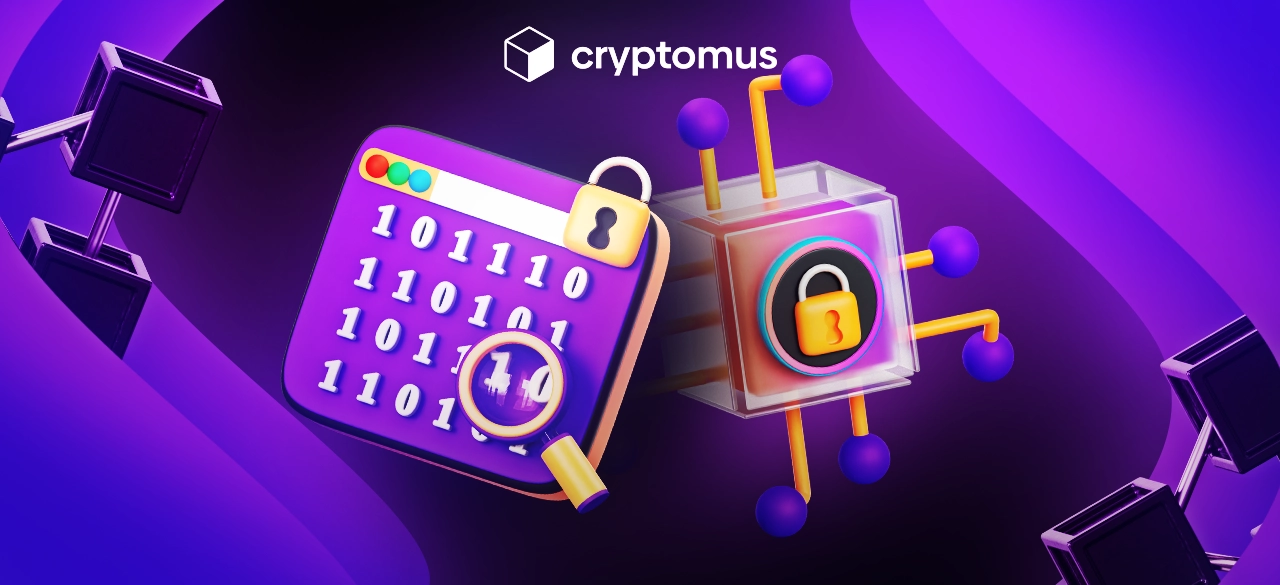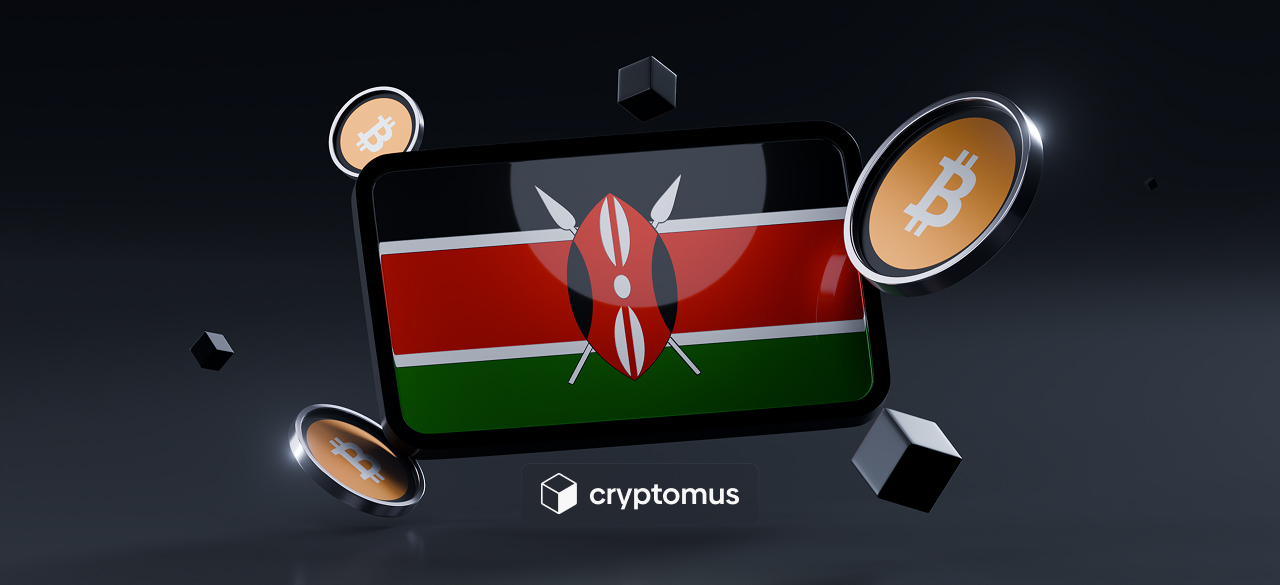
How to Buy Crypto in Kenya?
Table of Contents
Cryptospace is considered a young and still developing sector. That's why in many jurisdictions, the legal clarity for digital finance remains shady and complicated. Today, we'll research every important thing about crypto in Kenya and answer the most popular questions. Let's begin!
Is It Legal to Buy Crypto in Kenya?
Yes, it is legal to buy and store crypto in Kenya, but it is not a legal tender. Several authorities oversee the sector: the Central Bank of Kenya (CBK) supervises banks and the financial system, warning of the risks of crypto; the Capital Markets Authority (CMA) is responsible for investor protection and oversight of projects offering tokens or investment products; the Kenya Revenue Authority (KRA) collects taxes and regulates the procedure for their payment; and for crypto services — exchanges, wallets, and other Virtual Asset Service Providers (VASPs) — there's a separate bill that introduces licensing and operating rules (KYC/AML, customer protection).
Thus, it is possible to buy cryptocurrency in Kenya, but only through licensed services and in accordance with tax requirements.
Ways to Buy Crypto in Kenya
There are several ways to buy crypto in Kenya, with their own advantages and disadvantages. Let's take a look at each of them.
Centralized Exchanges (CEXs)
These are international platforms where you can buy crypto directly. They are particularly popular in Kenya, as some of them support local mobile payment services, notably M-Pesa (Safaricom's main system, used by most of the population for transfers and payments). Thanks to integration with M-Pesa, depositing and withdrawing funds is as convenient as possible.
Examples: Cryptomus, Luno, Yellow Card.
-
Pros: wide selection of coins, strong security measures.
-
Cons: KYC (Know Your Customer) is required.
P2P (Peer-to-Peer) Platforms
These are platforms where you can buy crypto directly from other users, setting your own terms for the transaction.
Examples: Cryptomus P2P, Binance P2P, Paxful P2P.
-
Pros: flexible transaction terms, many payment methods (credit/debit card, bank transfers and services, including M-Pesa).
-
Cons: risk of fraud, finding a reliable seller takes time.
Online Exchangers
Online instant exchange services that allow you to buy crypto with Kenyan shillings without complicated interfaces.
Examples: Remitano, Changelly, Paybis.
-
Pros: simplicity, support credit/debit cards and bank transfers.
-
Cons: high spreads, limits on amounts.
Fintech Apps
African apps adapted to the Kenyan market and closely linked to widely used services like M-Pesa.
Examples: Luno, Chipper Cash, Valr.
-
Pros: multiple deposits and withdrawals methods (card, bank transfers, e-money), intuitive interface.
-
Cons: limited selection of cryptocurrencies, high fees.
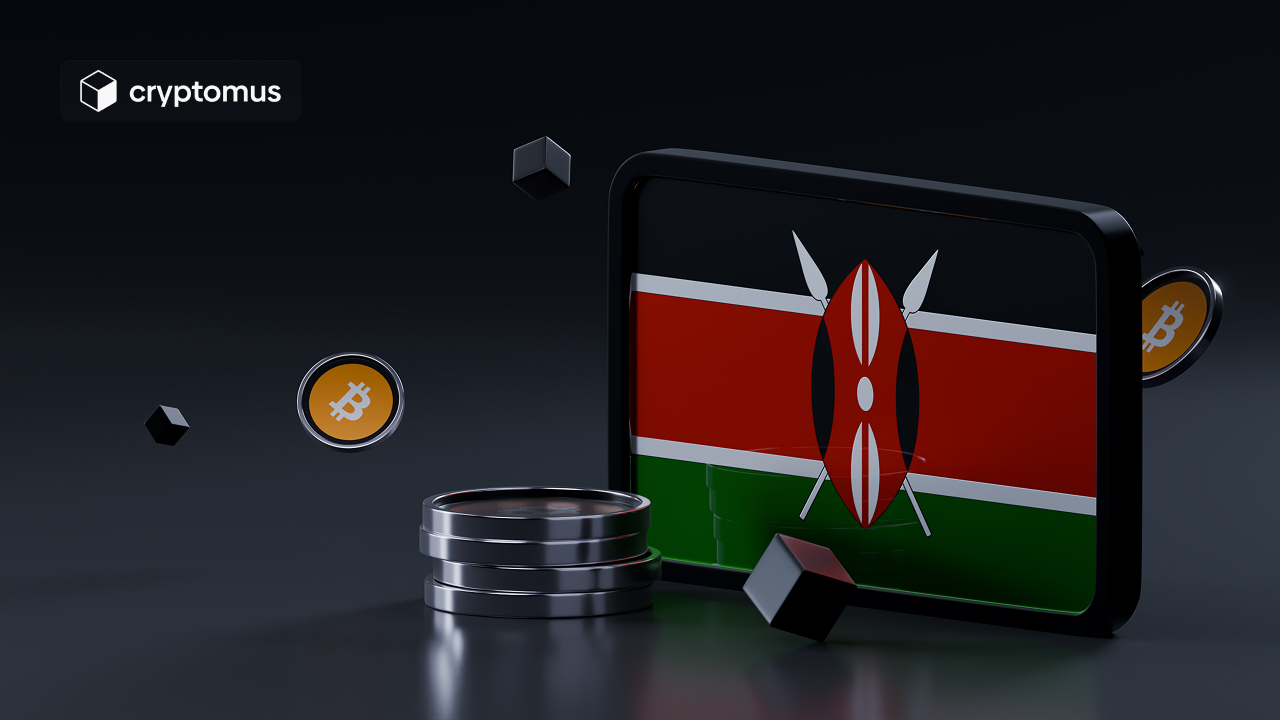
How to Buy Crypto in Kenya via P2P?
In Kenya, the most convenient and common way to buy crypto out of all the ones we've mentioned is via P2P platforms. This is the method we'll cover in our guide.
So, to buy cryptocurrency in Kenya through P2P, you need to:
-
Choose a P2P platform that works with Kenyan shillings.
-
Register an account.
-
Complete KYC and enable 2FA.
-
Choose a coin to buy.
-
Choose or create an order.*
-
Make a payment.
-
Receive crypto.
Now, let's look at each of these steps in more detail.
Choosing a P2P Platform
Make sure the platform supports deposits/withdrawals in Kenyan shillings and works with local banks. Check the accessibility of the features and the interface, and decide if it fits your taste. Try Cryptomus: it supports the Kenyan region, M-Pesa payments and has all the necessary tools for your comfort.
Account Registration
Enter your email/phone number and create a strong password. Confirm them to unlock basic access to your account.
KYC Verification and Setting up 2FA
Upload a document (passport/ID), take a selfie, and upload these to the site to pass the KYC procedure. Then, enable 2FA for an extra layer of protection.
Choosing a Coin to Buy
We suggest selecting USDT as your first purchase since it has the best liquidity in Kenya. Later you can convert it to Bitcoin, Ethereum, or any other coin.
Choosing or Creating an Order
Go to the P2P buying page, select the desired coin and put in the amount, then choose the payment method (card, bank transfer, M-Pesa) and the region (or leave “All regions” if it doesn't matter). Read through available orders and choose the most suitable for you, or, if there's no such order, create your own.
Making a Payment
Send the exact amount via chosen payment method and click “I've paid” in the order window to notify the seller.
Receiving Crypto
Check whether the coins have come to your wallet, and transfer them to another one, if you want. You can also store crypto on the exchange's native wallet.
Simple Way to Buy Crypto with Your Credit Card
Now let’s dive into the process of buying crypto with your credit card. We’ll take Cryptomus as an example:
-
Step 1: Sign up for a Cryptomus account to get your personal cryptocurrency wallet. Don’t forget to protect it by enabling 2FA and setting a strong PIN.
-
Step 2: To buy cryptocurrency on Cryptomus, you need to pass the KYC procedure: take a selfie, provide your documents, and verify your contact info. You may do it through your personal account settings.
-
Step 3: Return to the dashboard and click “Receive”. Fill in all your criteria: select the desired cryptocurrency to buy and a suitable network. Then choose “Fiat” as a type of receive option when you’re buying crypto with a debit or credit card.
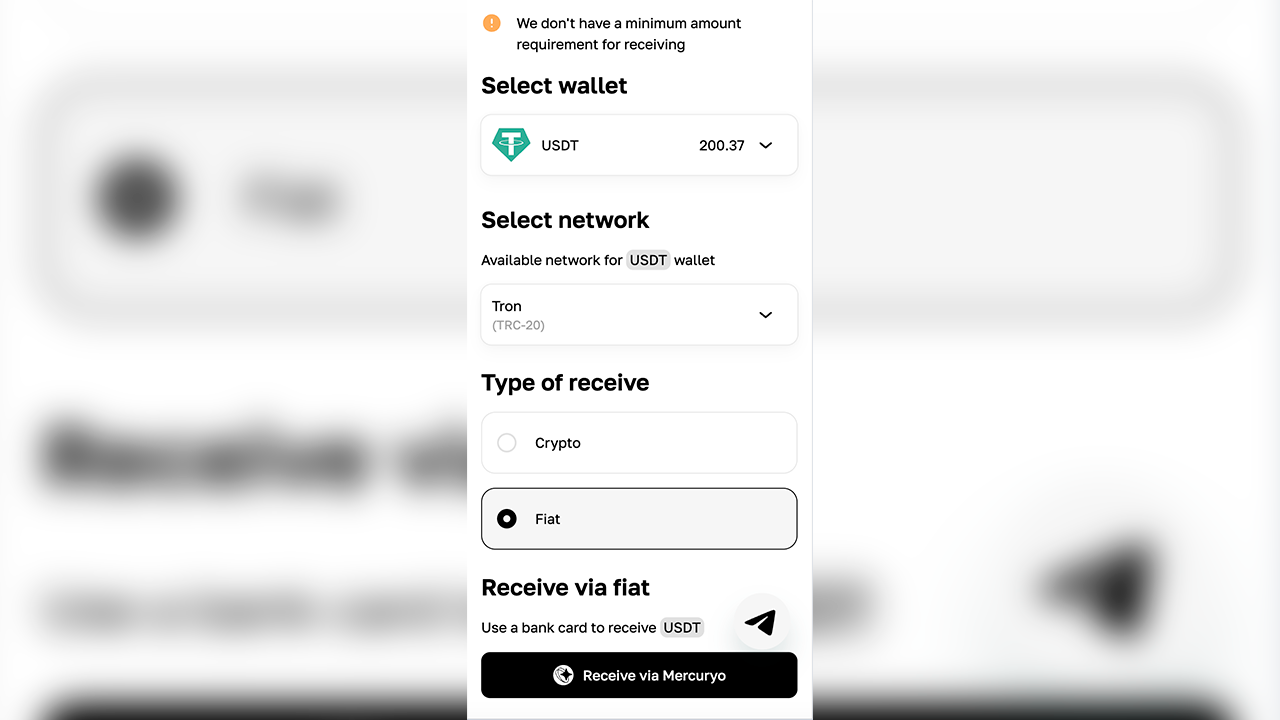
- Step 4: Click on “Receive via Mercuryo” and fill in the gap with the amount you’re going to pay in the preferred currency. The receiving amount of crypto will be automatically calculated in the payment form.
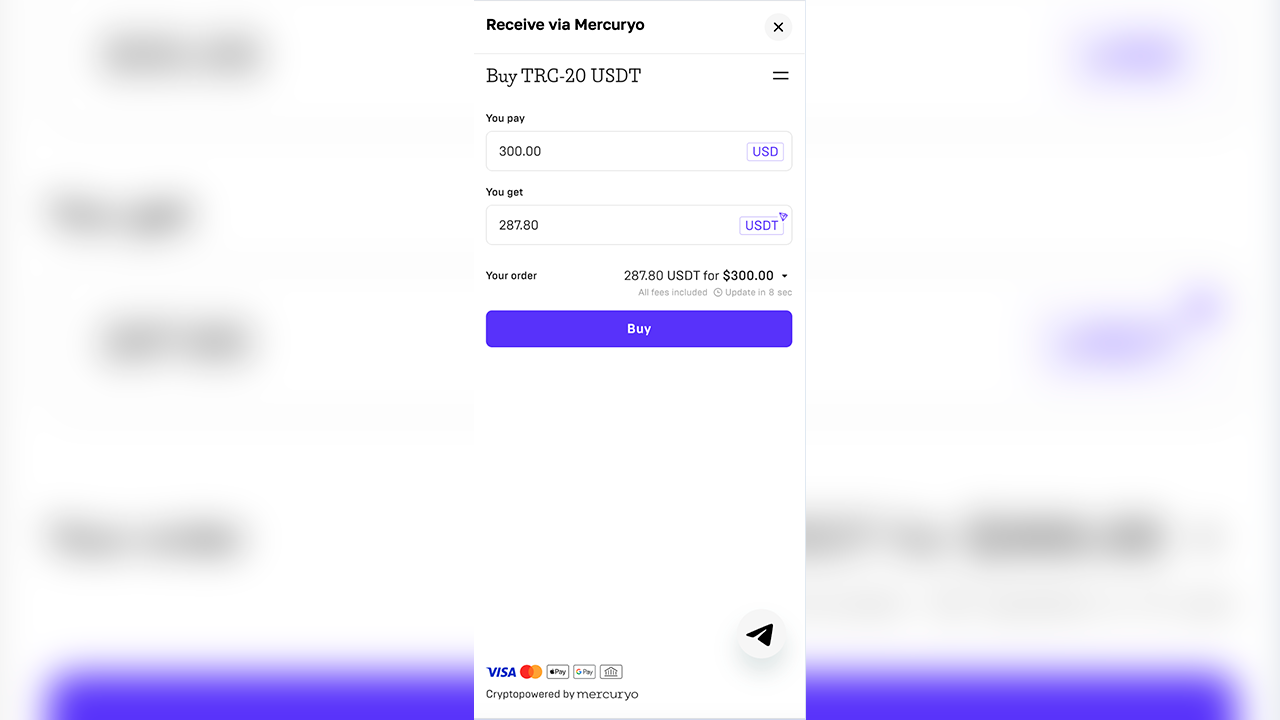
- Step 5: Next, fill in your email address for getting a verification code, and enter your debit orcredit card details to make a purchase. Then confirm the action.
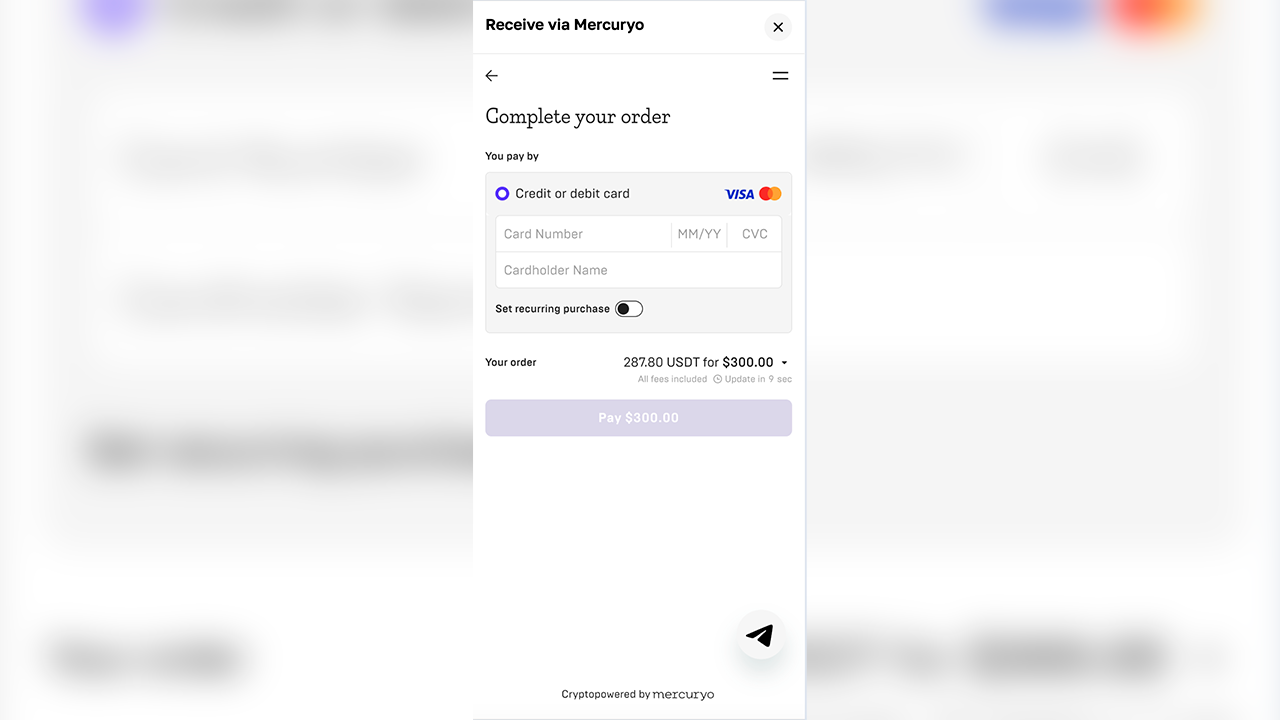
Well done! You’ve just bought cryptocurrency with a card without any complications. The funds will be credited to your personal wallet soon!
Do You Have to Pay Taxes on Cryptocurrency Investments?
Until mid-2025, Kenya had a 3% tax on every crypto transaction—even if you sold coins at a loss or simply transferred them between your wallets. This made trading extremely expensive and scared away investors.
Since July 2025, this tax has been removed and replaced by a new rule: now, a 10% excise tax is put only on commissions charged by exchanges, wallets, and other crypto service providers (VASPs). For users, this means significantly lower costs. For example, if an exchange charges a 1,000 KES commission for 100,000 KES transaction, the tax is just 100 KES, rather than thousands as before. Exchanges are required to withhold the tax themselves and transfer it to the Kenya Revenue Authority (KRA). Additionally, income from mining, staking, and airdrops is considered business income and is taxed at standard rates: from 10% to 35% for individuals and 30% for companies.
As a result, the system has become more transparent and convenient: the state receives taxes, and it has become easier and cheaper for traders and investors to work with cryptocurrencies.
Did you find this article useful? Did we answer all of your questions? Let us know in the comments below!
Simplify Your Crypto Journey
Want to store, send, accept, stake, or trade cryptocurrencies? With Cryptomus it's all possible — sign up and manage your cryptocurrency funds with our handy tools.
Get Started








